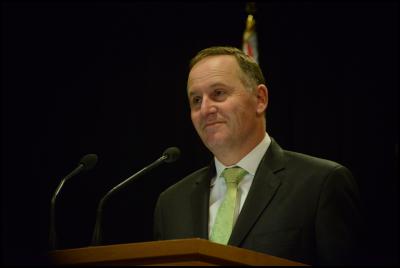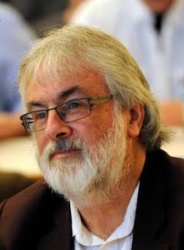Post Cab Presser: EQC reform, Greece & surplus stimulation
Post Cab Presser: EQC reform, Greece & surplus stimulation
Prime Minister John Key discussed proposals for reform of the EQC act and the Greek economic crisis at a press conference today in Wellington.
Three years ago the government set 10 targets for the public service; they included reducing long term welfare dependence, supporting vulnerable children boosting skills and employment reducing crime and improving interaction with government.
In the last three years some of these public sector aims have been met:
• Participation in early
childhood schemes increased from 94.7% to
96.1%
• Immunised 8 month olds increased from 84%
to 92.9%
• 14% less rheumatic fever admissions in
hospitals
• Increase in 18-year-olds achieving level
NCEA Level 2 from 74.3% to 81.1%
• 42,000 fewer
children living in benefit-dependant households
Key acknowledged that further reducing rheumatic fever admissions as well violence against children are areas where more work is needed.
The government will continue to provide updates on these goals every six months.
Propositions for reform of the EQC were released today and will likely be introduced early in 2016. Some of the proposed reforms include:
• No longer cover
contents insurance
• Increasing the cap on EQC building
cover from $100,000 +GST to $200,000 +GST
• Limiting
land cover to situations where rebuilding is not
practicable
• Requiring claimants to lodge their EQC
claim with their private insurer
More details can be seen here: http://www.scoop.co.nz/stories/PA1507/S00094/discussions-begin-on-reform-of-eqc-act.htm
Public submissions will close on September 11, 2015.
Key was questioned on ANZ’s recent report, which predicted economy growth slowing and proposed the government use fiscal tools to promote growth, and up the surplus target.
“Whether we make the surplus target or not, is now essentially dealt with for expenditure and revenue up until June 30.
“We
don’t know those results but whatever would impact on
those numbers has really been accounted for.
“The point ANZ is making is the right one; the government should be counter-cyclical so in times when the economy is slow, even if tax revenue is coming down, the government should be spending more money.
“In the end we will see how growth goes, it may well slow down a bit because of China, Greece or the dairy industry. But we are reasonably optimistic.”
Key said the government had increased expenditure in the past and was confident they would do that again if there were a need but would still be working hard to make surplus for the 14/15 year.
“We still have a very robust economy”, Key said.
“Dairy is 5% of our overall economy. We don’t want to pull the panic switch simply because dairy prices are falling.
“We're not opposed to increasing the spending cap, but it’s not what we think we need to do at the moment.”
Click a link to play audio (or right-click to
download) in either
MP3 format or in OGG format.
ENDS



 Gordon Campbell: On The Americanising Of NZ’s Public Health System
Gordon Campbell: On The Americanising Of NZ’s Public Health System Ian Powell: Trumpian Health Leadership
Ian Powell: Trumpian Health Leadership Eugene Doyle: Disruption - Historians Challenge Russophobic Propaganda
Eugene Doyle: Disruption - Historians Challenge Russophobic Propaganda Ramzy Baroud: War, Doublethink, And The Struggle For Survival - Geopolitics Of The Gaza Genocide
Ramzy Baroud: War, Doublethink, And The Struggle For Survival - Geopolitics Of The Gaza Genocide Binoy Kampmark: Authoritarian Politics - Netanyahu’s War On Israeli Institutions
Binoy Kampmark: Authoritarian Politics - Netanyahu’s War On Israeli Institutions Keith Rankin: Learning The Correct Lessons From World War Two In Europe
Keith Rankin: Learning The Correct Lessons From World War Two In Europe